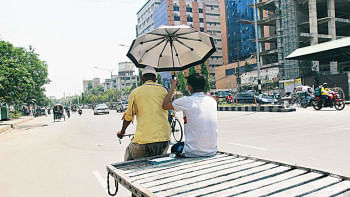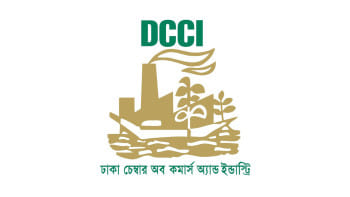There is a way to cool Dhaka city down

Dhaka, the capital of Bangladesh, has been seeing worsening environmental issues such as haze, water scarcity, and the urban heat island effect. The last phenomenon occurs when a city's temperature exceeds that in the surrounding countryside. The rising temperature is negatively affecting Dhaka's energy efficiency and the well-being of its citizens.
One way to curb urban heat is to plant deciduous trees – trees that shed their leaves with season change – in urban settings in increasing numbers. These trees are great for cities since they block sunlight during the summer, lessening the impact of the urban heat island effect, and let in light during the winter, saving money on heating costs.
Typically found in temperate and subtropical locations, deciduous trees produce leaves throughout the spring and summer, then shed them in the autumn and winter. Numerous ecosystems require deciduous trees because they provide shelter and food for animals, improve air and water quality, and help regulate the local climate and weather.
Deciduous trees play an essential role in urban settings since they offer many advantages to both the environment and the inhabitants. One of the key benefits for cities like Dhaka is their capacity to regulate temperature. During the sweltering summer months, deciduous trees, which have big, flat leaves, give much-needed shade, which helps to lower the surrounding temperature. In addition, these trees produce water vapour via transpiration. This vapour rises into the atmosphere, causing the air to chill. This can assist in reducing the area's temperature and make it a more comfortable place for people.
The potential of deciduous trees improving air quality is another benefit for Dhaka's environment. Trees are natural air purifiers and aid in the removal of airborne toxins. This can lower the chances of respiratory and other health issues in metropolitan settings. In addition, deciduous trees mitigate noise pollution by forming a barrier between busy streets and residential neighbourhoods.
Another advantage is the capacity of deciduous trees in Dhaka city, especially in residential areas like Dhanmondi, to offer a habitat for wildlife. Numerous birds, insects, and other animal species depend on trees for survival. In addition to providing essential homes for these species, deciduous trees can also increase biodiversity in the capital city. This can improve the ecosystem's general health and assist in maintaining a healthy species balance in the area.
There are a number of deciduous trees native to or often found in Bangladesh that can be utilised to assist in lowering the temperature in Dhaka. For example:
- Neem (Azadirachta indica) is a tree native to Bangladesh that is well-known for its therapeutic benefits. It is a fast-growing tree with a maximum height of 30 metres. It is drought-resistant and able to flourish in poor soil conditions.
- Rain Tree (Samanea saman) is also known as the Monkey Pod tree. This huge deciduous tree can grow as tall as 40 metres. Its expansive canopy provides enough shade, while its extensive roots assist in stabilising the soil.
- Jackfruit (Artocarpus heterophyllus) is a big deciduous tree with a maximum height of 30 metres. It is indigenous to our country and widespread in rural and urban areas.
- Mango (Mangifera indica) trees can grow 30 metres high and are deciduous. It was first spotted in Bangladesh and India, where it is now native. The tree matures rapidly, and its fruit is a significant source of nutrition for locals.
- Mahogany (Swietenia macrophylla) tree is a vast deciduous tree that can grow as tall as 50 metres. It originated in Bangladesh and is still widely distributed in rural regions. This tree matures quickly and produces high-quality lumber.
As temperatures and air pollution continue to rise in Dhaka, it is imperative that deciduous trees be planted to maintain the appropriate levels of temperature and pollution. To encourage the planting of deciduous trees in Dhaka city, we need a number of initiatives, such as public awareness, urban planning, government support, private-public partnerships, tree nurseries, community involvement, and tree-planting campaigns.
Ultimately, the solution to urban heat island effect can be found in the planting of deciduous trees in Dhaka. Provide shade, increase humidity, and remove heat-trapping pollutants from the air – these are just a few ways deciduous trees contribute to making a city cooler. In addition to helping the environment and people's health, these trees provide a quieter neighbourhood and a better place for wildlife to call home. Involving the local community, informing the public about the benefits of these trees, and securing funding are all crucial to the success of a tree-planting campaign. Planting deciduous trees in Dhaka can be an effective and long-lasting answer to the problem of urban heat islands, if resources and support are provided adequately.
Shamsun Nahar is lecturer at the Department of Environmental Science in the State University of Bangladesh.

 For all latest news, follow The Daily Star's Google News channel.
For all latest news, follow The Daily Star's Google News channel. 











Comments